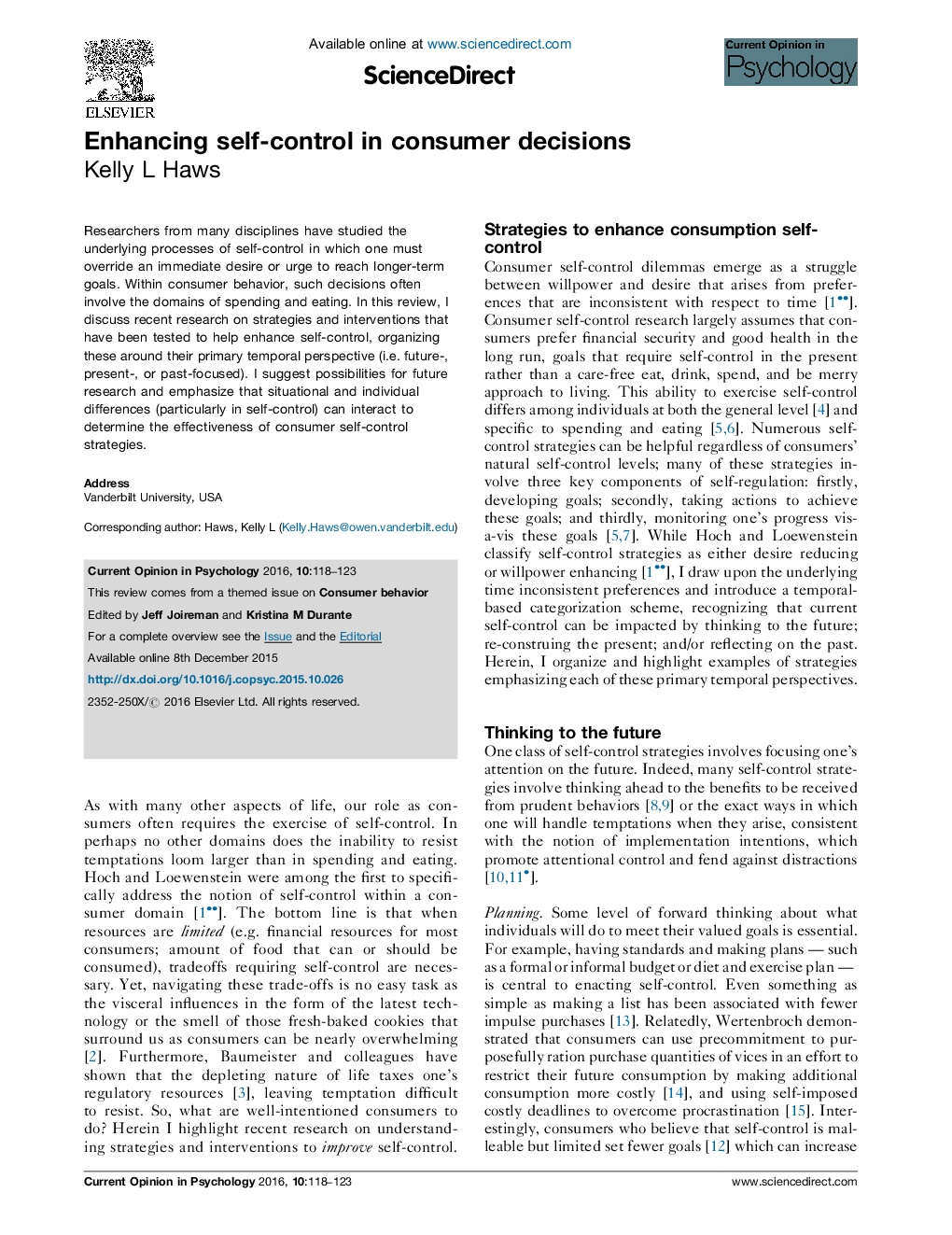| Article ID | Journal | Published Year | Pages | File Type |
|---|---|---|---|---|
| 879271 | Current Opinion in Psychology | 2016 | 6 Pages |
•Strategies used to enhance consumer self-control are reviewed.•These strategies differ meaningfully in terms of their temporal focus.•Present and future-based strategies seem to be more effective than past-focused.•Individual differences in self-control impact strategy effectiveness.•Future research should systematically study what makes strategies effective.
Researchers from many disciplines have studied the underlying processes of self-control in which one must override an immediate desire or urge to reach longer-term goals. Within consumer behavior, such decisions often involve the domains of spending and eating. In this review, I discuss recent research on strategies and interventions that have been tested to help enhance self-control, organizing these around their primary temporal perspective (i.e. future-, present-, or past-focused). I suggest possibilities for future research and emphasize that situational and individual differences (particularly in self-control) can interact to determine the effectiveness of consumer self-control strategies.
